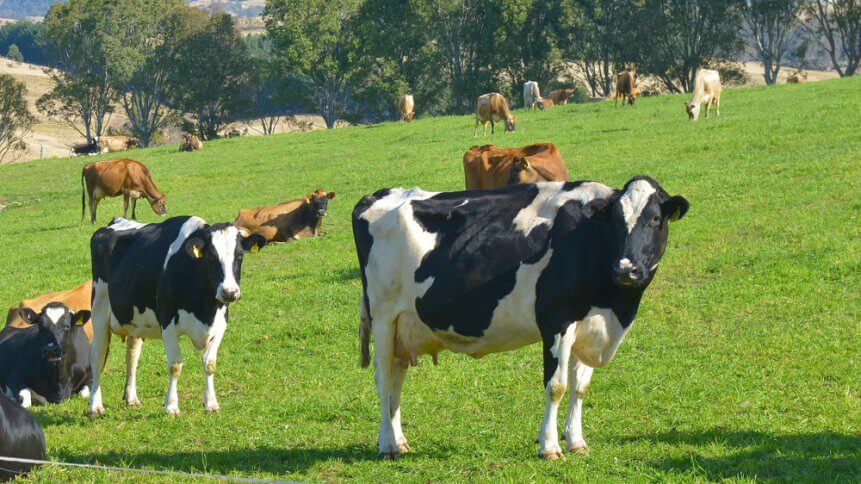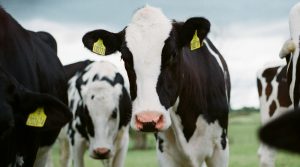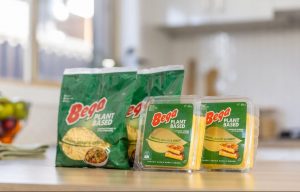
Bega Cheese invested in a single ERP system to unify its processes with Tatura Milk Industries
Real-time data on milk production can boost efficiency in the transportation of raw materials to manufacturers
Enhanced visibility in the supply chain provides new avenues for operational scaling
Listed in ASX Top 200 Companies, Bega Cheese has been making history since its establishment in 1899.
As food companies and manufacturers head into Industry 4.0, a new wave of demands in technological advancements is becoming commonplace as production lines are increasingly optimized. Businesses are adopting next-gen technologies to fulfill growing consumer demands.
The Australian dairy product company is not immune to the need for businesses to keep pace with digitalization. Projects are unfolding worldwide, especially in the food and beverage sector.
In 2016, Bega Cheese was reported to have invested heavily in an enterprise resource planning (ERP) system that they anticipated would “ultimately result in improved business information, integration, efficiencies, and decision making.”
These developments came following the merger between Bega Cheese and Tatura Milk Industries in 2011, with the newly created partnership aiming to consolidate its operations on a single and unified ERP system.
Some of the benefits Bega Cheese envisioned include automated processes, enhanced tracking of milk and ingredients in real time, integrated business planning, and imposed data standards across the business.
The dairy company’s goal of upgrading its business operations with technology continues, and Bega Cheese is now leveling up its digitalization game by enlisting the Internet of Things (IoT) in its supply chain.
The ASX-listed dairy company is launching an IoT service that connects its farmer suppliers, milk transporters, and their storage and processing facilities with real-time data.
The IoT-backed system will offer details of milk production with farmer suppliers , which includes information like milk volume, temperature, quality composition, and transport conditions. The collected data from these key areas is poised to improve efficiencies in pickup and delivery frequencies, lowering costs, and improving the overall traceability of the product.
The project scope can be seen to follow a chain of processes, from gathering the raw data from the dairy, to deriving information from its valuable data, to churning them into actionable insights, and finally to presenting these actionable insights to help stakeholders decide the next best course of action.
Low-cost milk quality sensors will be developed and an IoT Supply Chain Monitoring system will be built to offer real-time updates on milk supply quality and quantity, farm conditions that could affect milk production and the transportation links across the supply chain. A Farmer App is included in the project scope as well to provide milk forecasting alongside pickup alerts and milk quality.
Transparency in the supply chain is gaining popularity as consumer awareness on the environmental price tag of products is rising and becoming a key factor when making a purchase. Swiss brand Nestlé has even adopted blockchain initiatives to gain enhanced visibility in its supply chain.
More recently, Kraft shared with TechHQ that the food giant has enlisted AI and ML to secure its fast-moving consumer goods (FMCG) supply chains amid the coronavirus outbreak that caused major disruptions in global supply chains.
GM Supply Chain at Bega Cheese, Adel Salman, told iTnews, the company is looking to leverage the capabilities of IoT to manage both inbound and outbound supply chain processes but “we didn’t have was experience in setting up IoT projects, so we started looking around for a partner that could provide us with IoT expertise, resources, industry contacts and help with government backing.”
Therefore, the collaboration of Bega Cheese with “Swinburne University of Technology with its Internet of Things Lab and Industry 4.0 initiatives, as well as its research partnership with Software AG was the perfect collaborator for us.”
Salman added, “Swinburne University listened to what we needed to achieve and, together with Software AG, developed an IoT strategy with a set of solutions that met our needs.
“We’re excited to see the benefits that IoT can bring to our company. By working with Swinburne University and Software AG, we hope to be able to increase our growth across higher-value premium products, thus enhancing the competitiveness for both Bega and our suppliers.”























